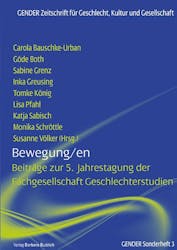Gender relations in post-socialist countries Even more than 20 years after turning away from socialism, Eastern European and Central Asian states are still characterized by the regime change in the fields of work, politics, and culture. What are the effects and implications that this change has produced for gender relations in post-socialist countries? And what does this mean for the situation of women and men living there today? In this context gender relations are especially interesting since gender equality was perceived as a political goal and, moreover, a given reality in socialism. The articles in this volume show the changes as well as the stability of gender relations and power structures during the transformation process and in post-socialist times. They shed light on topics like labour market policies, fertility, political representation of women or male artists concerned with gender issues covering the geographical space from Hungary and Poland over Bulgaria and Romania to Ukraine and Uzbekistan. Beyond that, some of the descriptions and analyses challenge understood certainties about how to create gender equality and about the women and men living in post-soviet regions today.

Engendering Transformation : Post-socialist Experiences on Work, Politics, and Culture
book
Paare und Ungleichheit(en) : Eine Verhältnisbestimmung
book
Bewegung/en : Beiträge zur 5. Jahrestagung der Fachgesellschaft Geschlechterstudien
book
Alte neue Ungleichheiten? : Auflösungen und Neukonfigurationen von Erwerbs- und Familiensphäre
book
Elternschaft und Familie jenseits von Heteronormativität und Zweigeschlechtlichkeit
book
Mobilisierungen gegen Feminismus und 'Gender' : Erscheinungsformen, Erklärungsversuche und Gegenstrategien
Mara Kastein, Nilgün Dağlar-Sezer, Sandra Beaufaӱs
book
